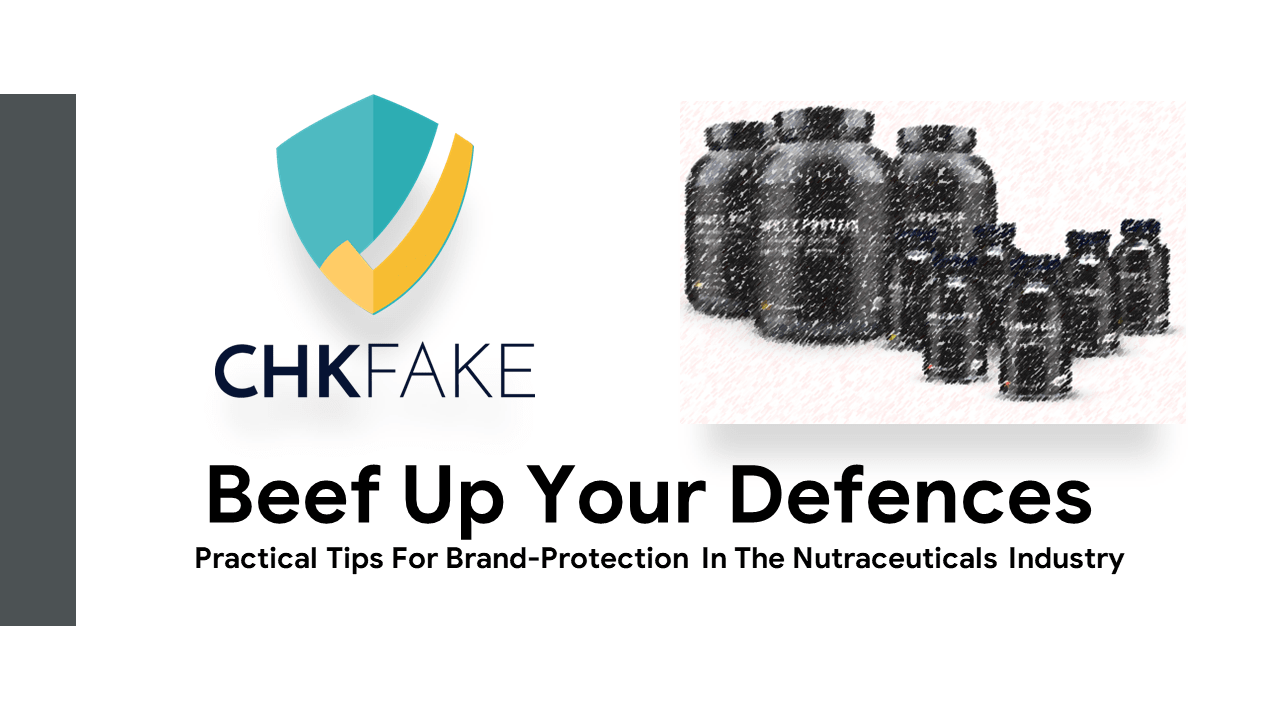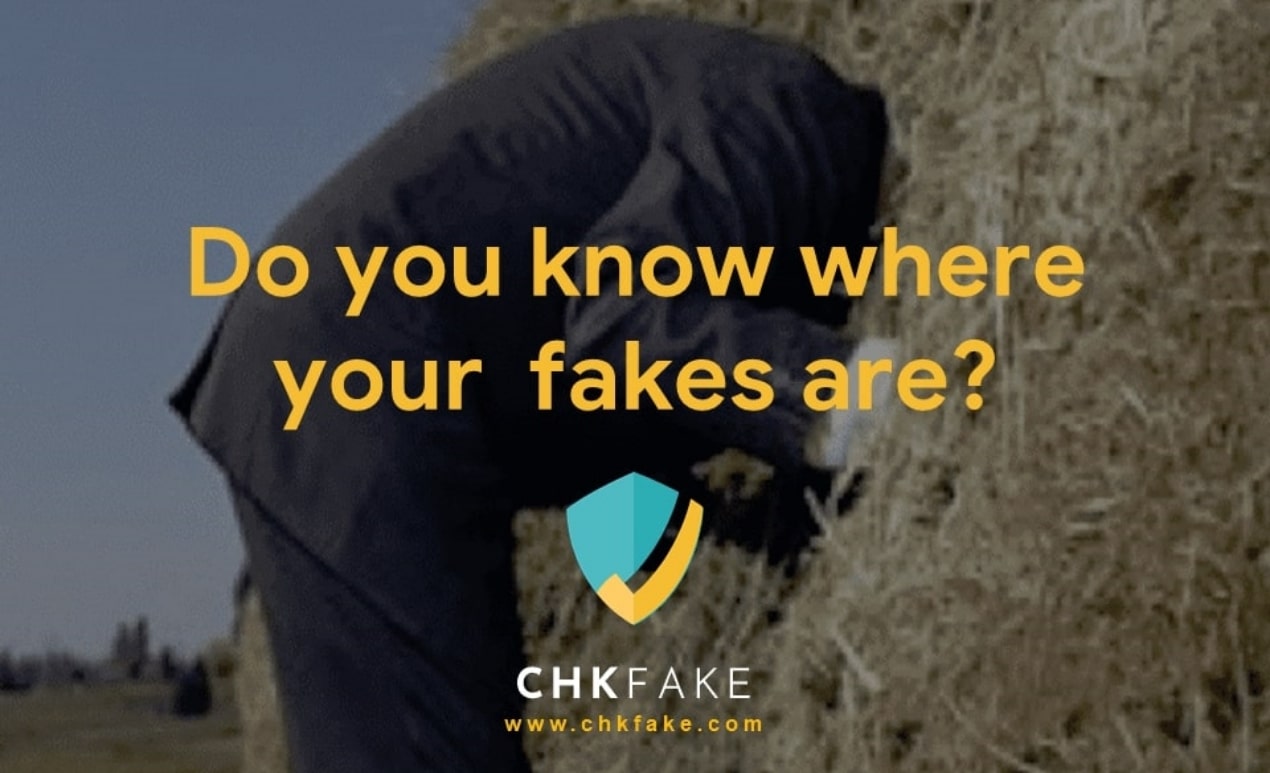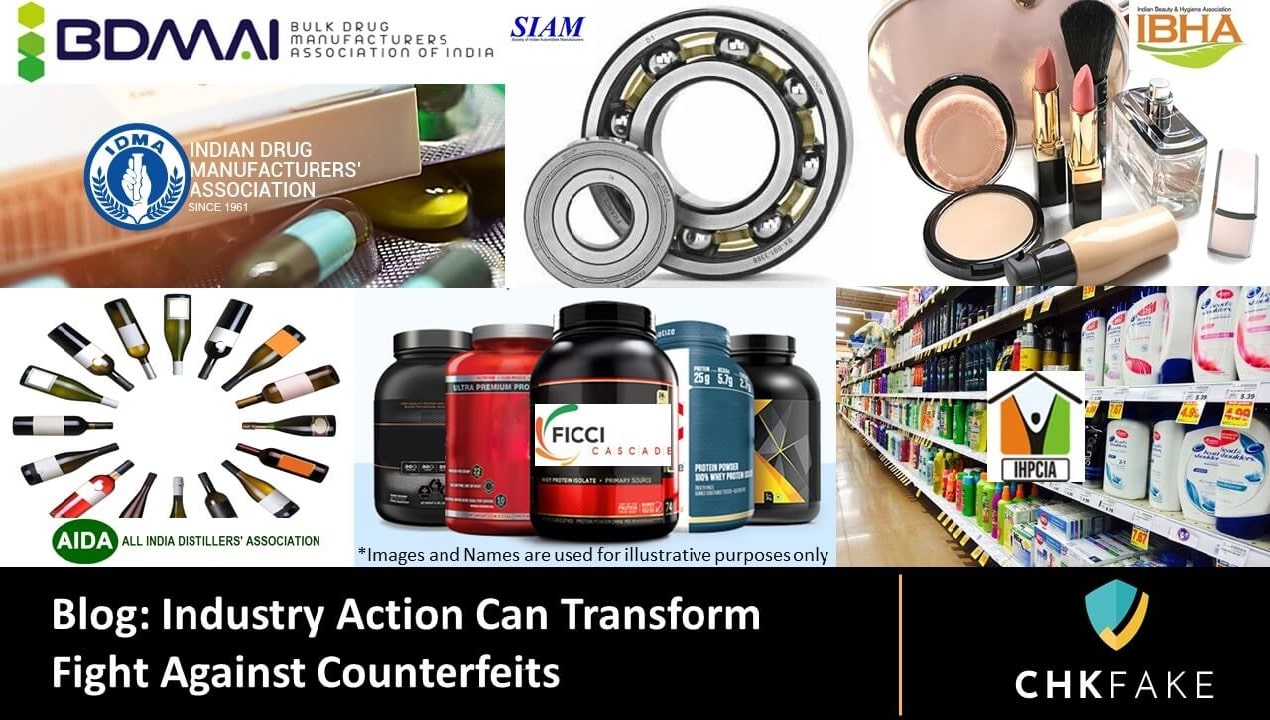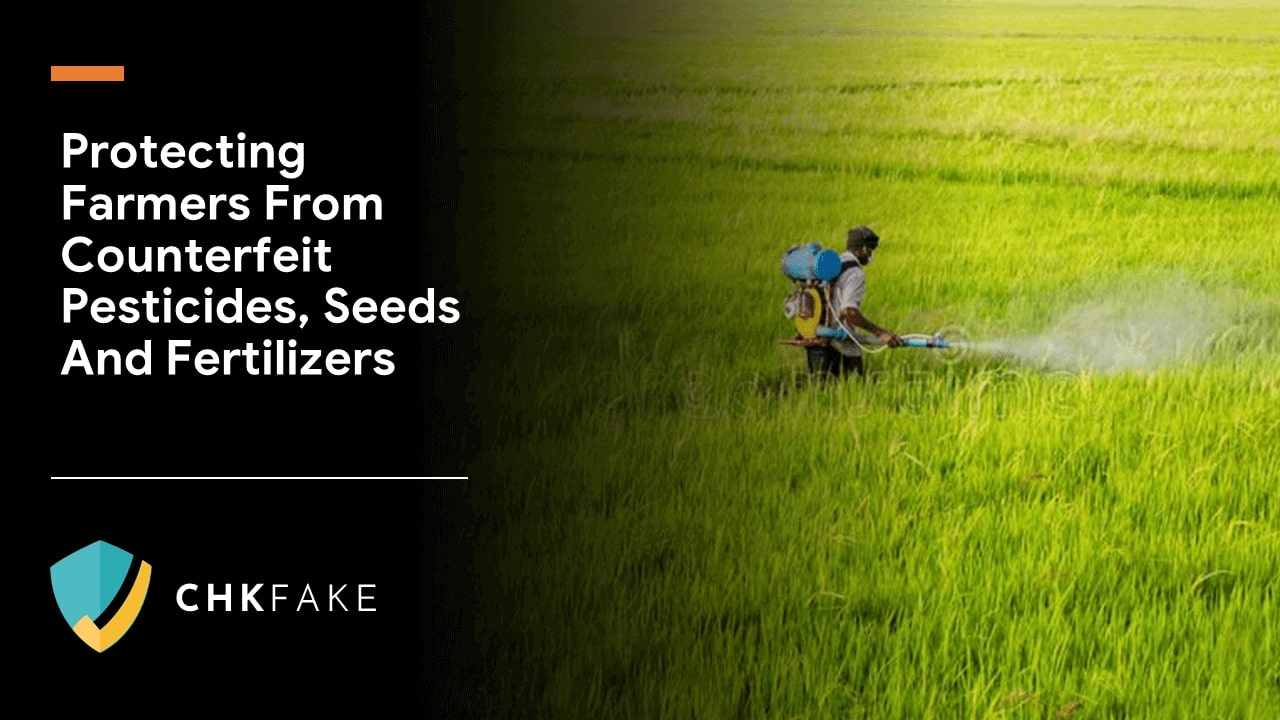Practical Tips For Brand-Protection In The Nutraceuticals Industry
Nutraceuticals category is already massive and is expanding by the day. New products, new manufacturers, plus established brands from health, wellness and pharmaceuticals companies are entering this space. This phenomenal market growth, combined with high profitability has acted as a catalyst for counterfeiters’ interest in the industry.

Nutraceuticals is not a strictly regulated category like pharmaceuticals. One can easily buy nutraceuticals over-the-counter or online without any prescription. As their claimed benefits do not necessarily have to be proven, they are not even covered under the food laws in many countries. As a result, the regulatory oversight and support is minimal for nutraceuticals including many developed countries, creating fertile ground for fraud.
Besides counterfeits, the nutraceuticals industry is plagued by adulteration and diversion from low price and tax base countries. A part of the problem lies with the industry which may need to do more to deter these practices. Based on our conversations with industry leaders, here is a summary of current practices and the vulnerabilities it’s leaving open.

Protection from counterfeits and diversions
1.Stronger and multi-layered anti-counterfeiting technology
It is critical to make your product difficult to copy/refill and make it easy for customers and other stakeholders to identify the genuine. Brands often use one or two security technologies, which makes their products vulnerable to counterfeits. A multi-layered approach using the covert and/or overt features and digital verification usually is the most effective long-term solution in identifying the gaps and plugging the loopholes.

Optimum Nutrition uses a combination of gold hologram on the neck band, tub design, batch-code on the bottom, authentication scratch-card code for instant verification, and inside vacuum barrier to identify authenticity of the pack. Image Source
2.Tamper evidence
Any anti-counterfeiting technology solution needs to address the problem of “Refill” i.e. genuine used packaging being ‘refilled’ with counterfeit or content being adulterated. With Nutraceuticals, this is a significant problem as most genuine packs can be reused and resold without the customer being able to tell the difference.
The solution is to make use of tamper-evident closures, which make it evident if the product has been opened.

Tear bands on Health Supplement Bottles
3.Protect against Diversions
Mark your products with unique codes that can be a part of a track & trace system – authenticated by distributors, retailers, and consumers. Scans of the code at each level can check its authenticity, country of origin, and expected location of sale. If the location does not match the expected location, this could signal diversion to the brand owner.

Authentication Code used on Optimum Nutrition Pack. Image Courtesy
4.Facilitate verification by customer
Facilitate easy verification of genuine products by deploying the latest in authentication technology. Chkfake is a state-of-the-art authentication and reporting platform on which brands can list their products.
The advantage of using a cross-industry platform like Chkfake is that the brand owner does not have to invest in building and maintaining an authentication portal (website or app). At the same time, the customer can access a single platform to verify any nutraceutical brand.

In order to encourage more customers to verify before they buy, a loyalty program could link each authentication to a reward such as a discount off the next purchase or points that can be redeemed for gifts.

Loyalty Points Offer by Glanbia. Image Source
5.Educating customers on the risks of buying fakes
Brands need to actively communicate to customers about the importance of buying genuine, and information about ‘how to verify’. Since a major proportion of nutraceutical sale is either online or in gyms, this is a good medium to communicate this message.

Authentication Steps for MusclePro Nutrition. Image Source
6.Leverage the Regulators
The regulators have an agenda to guide and influence the industry to ensure public health and well-being, as well as policymaking for the smooth operations of the industry. The regulators can also be persuaded to support the industry operationally by initiating collective action in the areas of educating the customers, stopping illegal diversions through customs and ensuring stricter compliance against adulteration.

USFDA list of tainted dietary supplements. Image Source
7.Online Enforcement
Partner with online platforms to drive campaigns against sellers listing counterfeits or become part of their anti-counterfeiting like Project Zero from Amazon. Nutraceutical brands should work with online platforms to identify, remove, and deter counterfeiters selling through their platforms.
For this purpose, the support of an online enforcement agency can be crucial. Partners such as these use sophisticated technology such as image recognition and seller clustering to efficiently identify counterfeit products and also allow brands to automatically takedown such listings.
8.Investigations and Legal Action
It is important to act upon any counterfeit lead and try to get to the source of supply. Brands should use 3rd party legal firms and investigators to identify the supply chain of counterfeiters and work with enforcement agencies to take enforcement action including seizures, cease & desist notices, civil suits etc.

36 Tonnes of fake supplement caught by law enforcement and food and drugs department near Delhi. Image Source
9.Enforcement Management system
Use an enforcement management tool, such as Chkfake, to capture and manage enforcement leads effectively. Most brands do not have a system in place to capture intelligence on counterfeits/ lookalikes from the market. As a result, leads are lost and the brand continues to suffer.
An enforcement management tool increases the brand’s enforcement footprint and enables a quick and deterrent action. It also gives the brand access to all enforcement intelligence in one place.

Image courtesy: Chkfake
Nutraceuticals are high-profit products, making them an attractive target for counterfeiters. While the above list serves as a practical design on how brands can protect themselves against threats from counterfeits, cherry-picking 1-2 items will not serve the purpose.
The brands will have to work on all the aspects to create a holistic brand-protection program. With growing global demand for nutraceuticals, consumers and brand owners together need to be on their guard against counterfeits in this sector.
If you liked what you read, please do share in your network. You can follow my articles on LinkedIn and Twitter, or subscribe to My blog.
_________________________________
Tanmay Jaswal is the Founder of Chkfake, a start-up that is disrupting the anti-counterfeiting industry by creating an eco-system of all stakeholders to join the fight against fakes together. The Chkfake mobile app allows users to verify genuineness of any product irrespective of category or brand.
Tanmay has 26 years of global experience in business leadership, marketing and strategy in companies like Coca-Cola and Shell and is an acknowledged authority on brand protection. He has headed the brand protection function for Shell globally and has extensive experience in this space over the last 8 years.






0 Comments